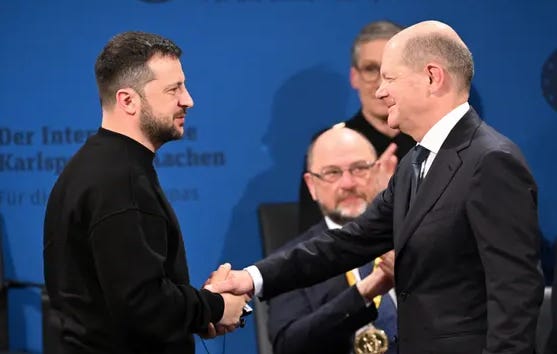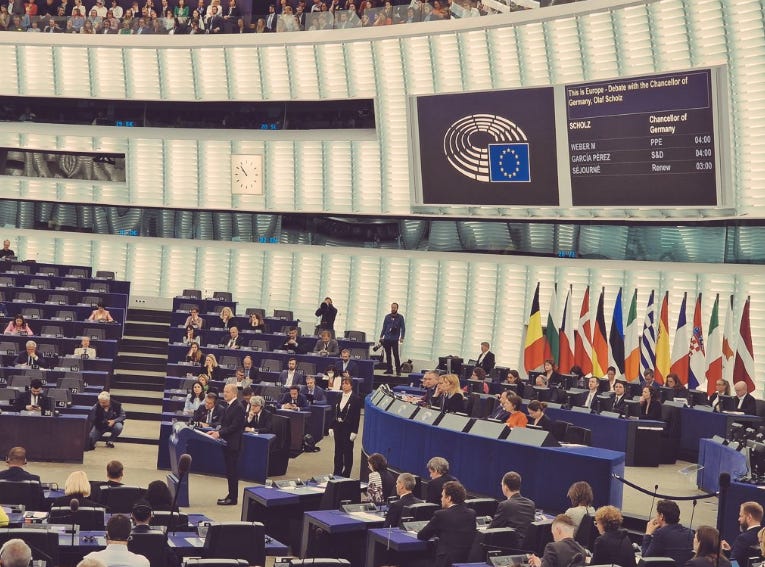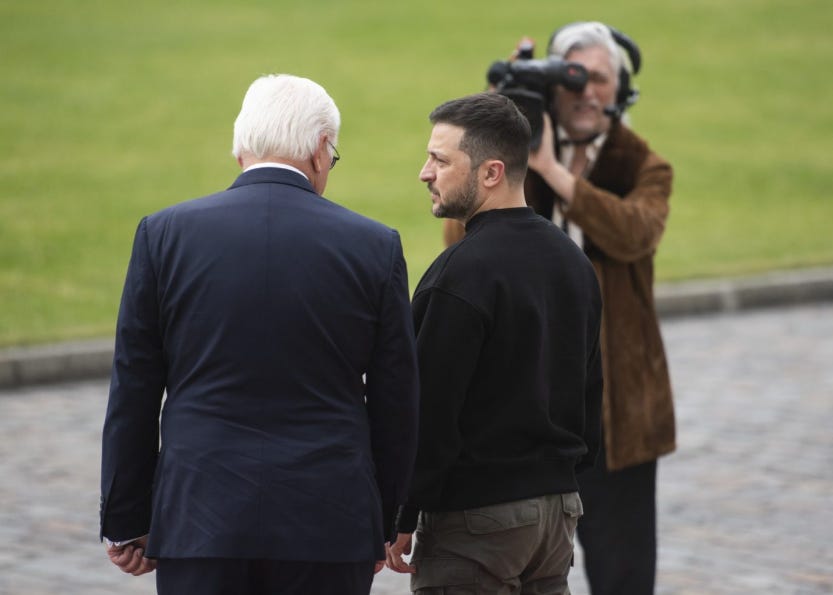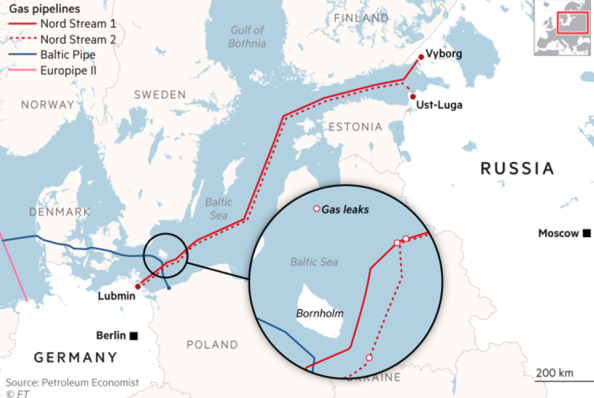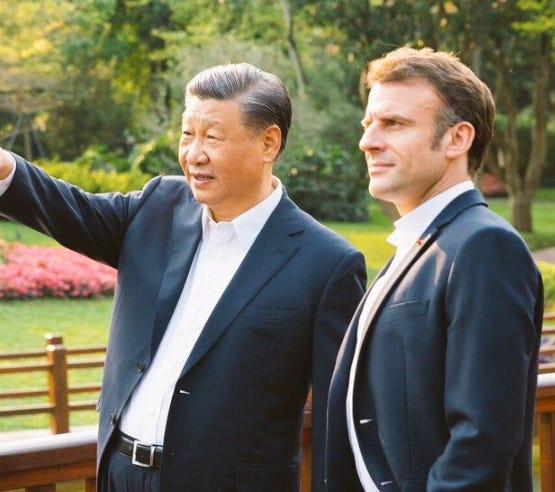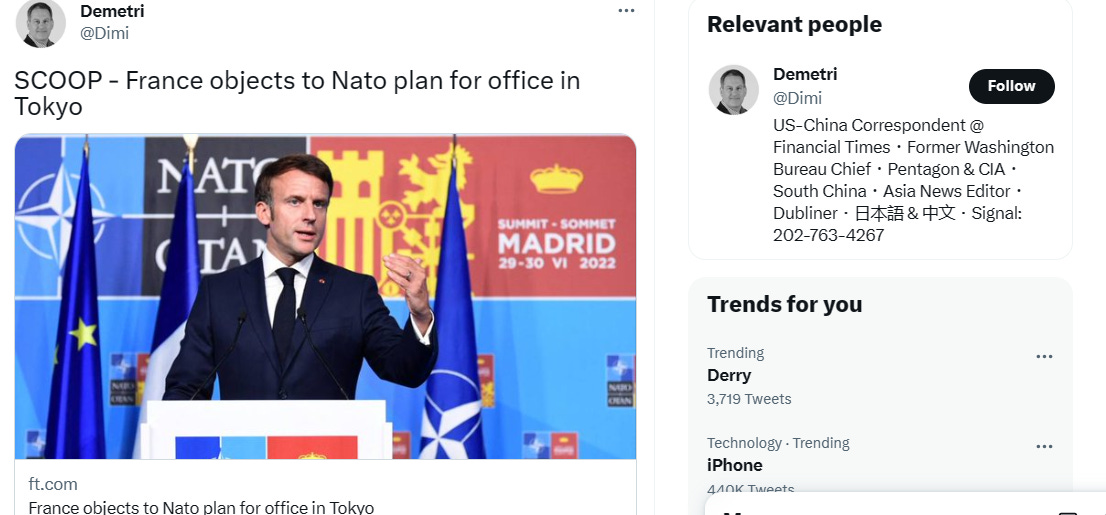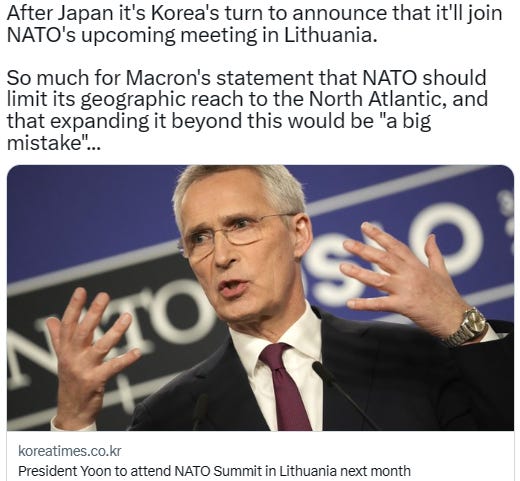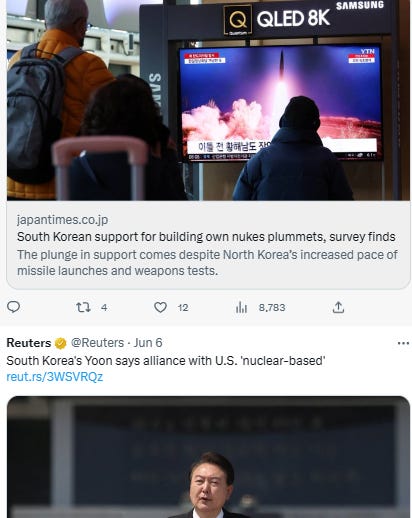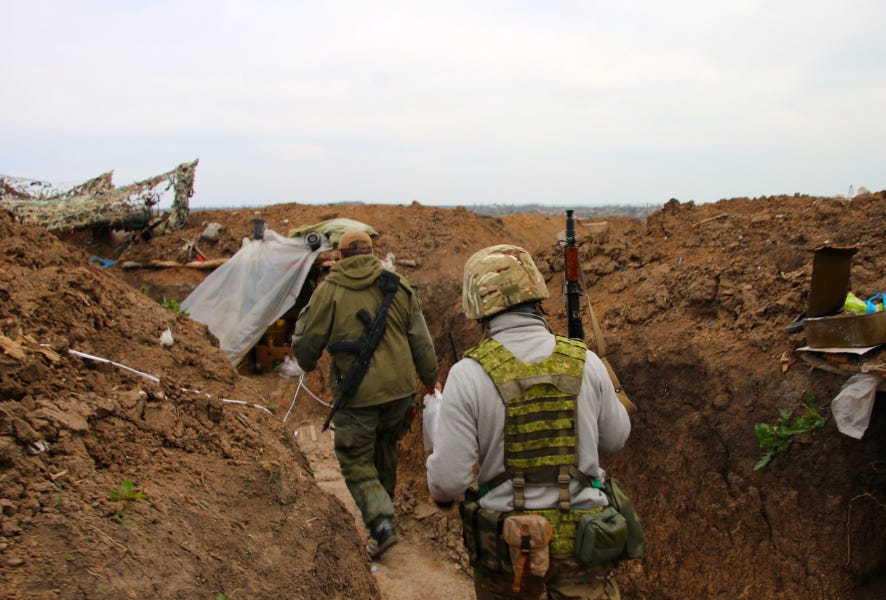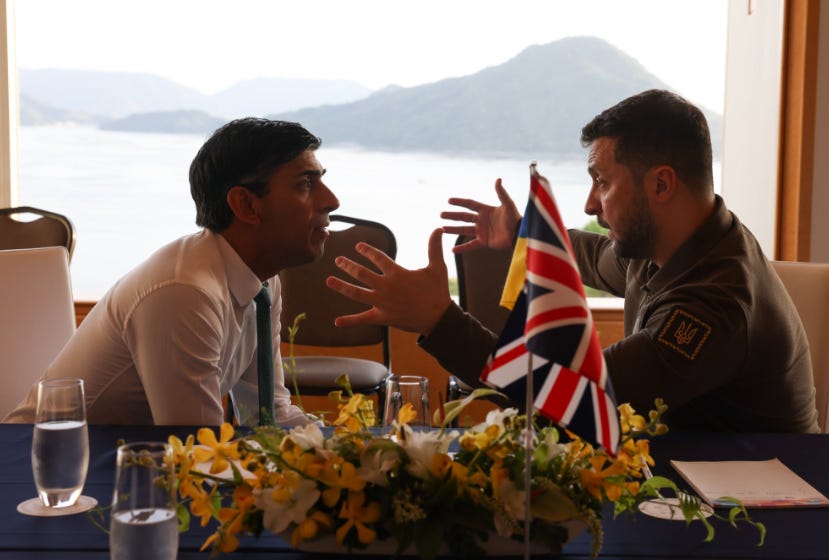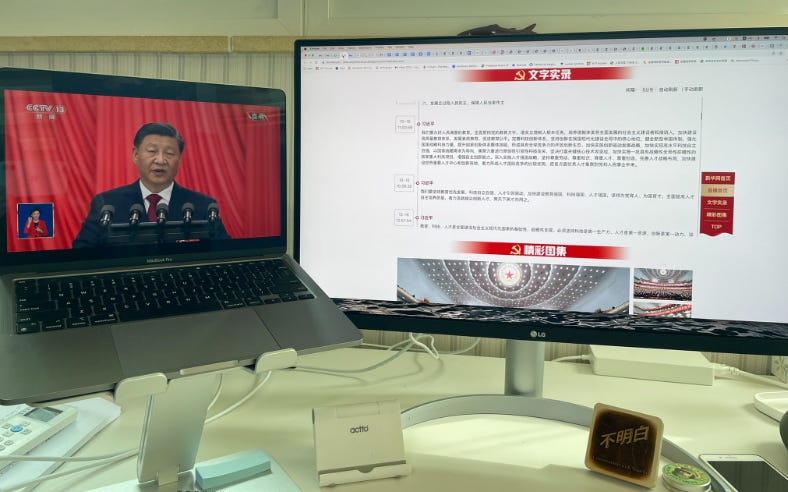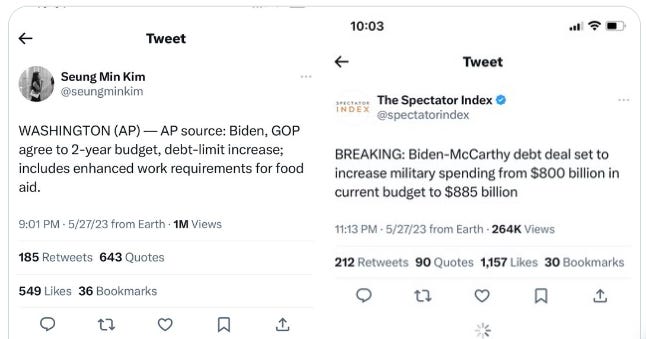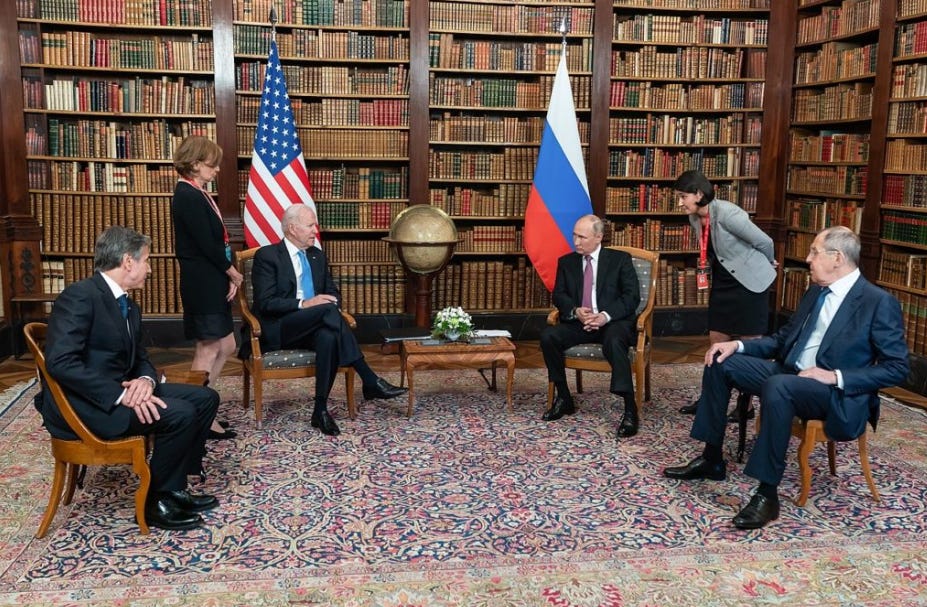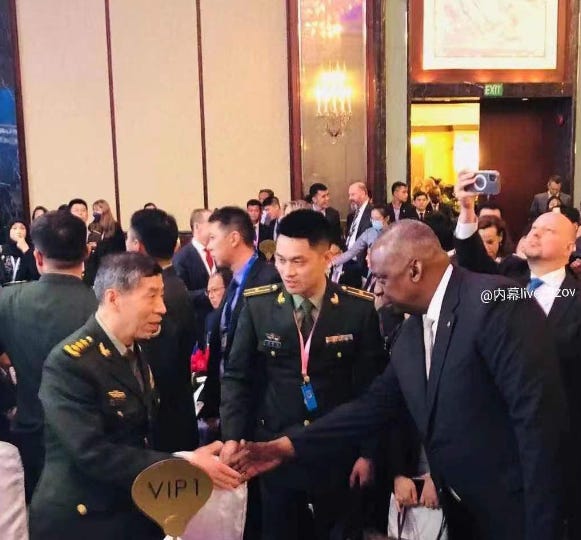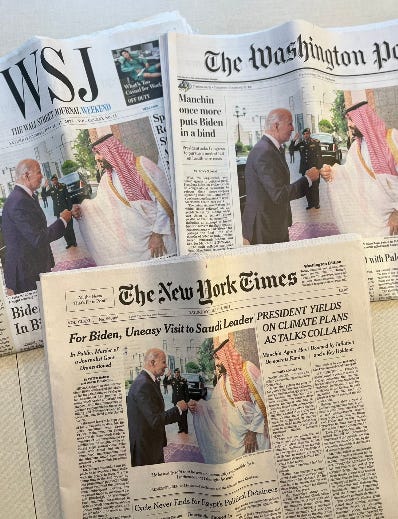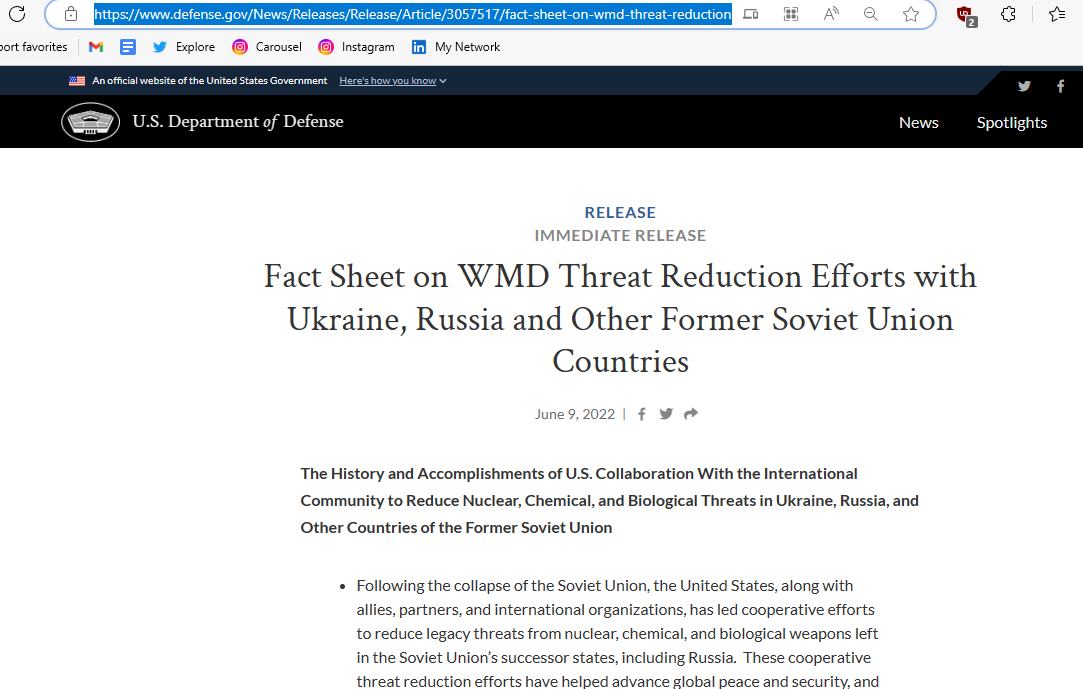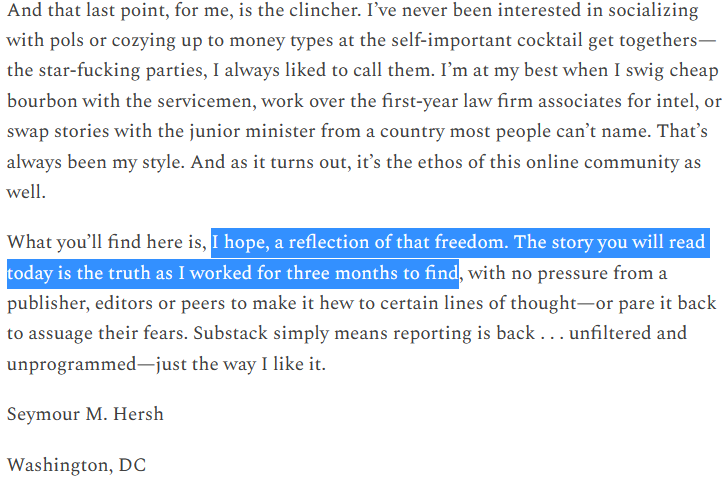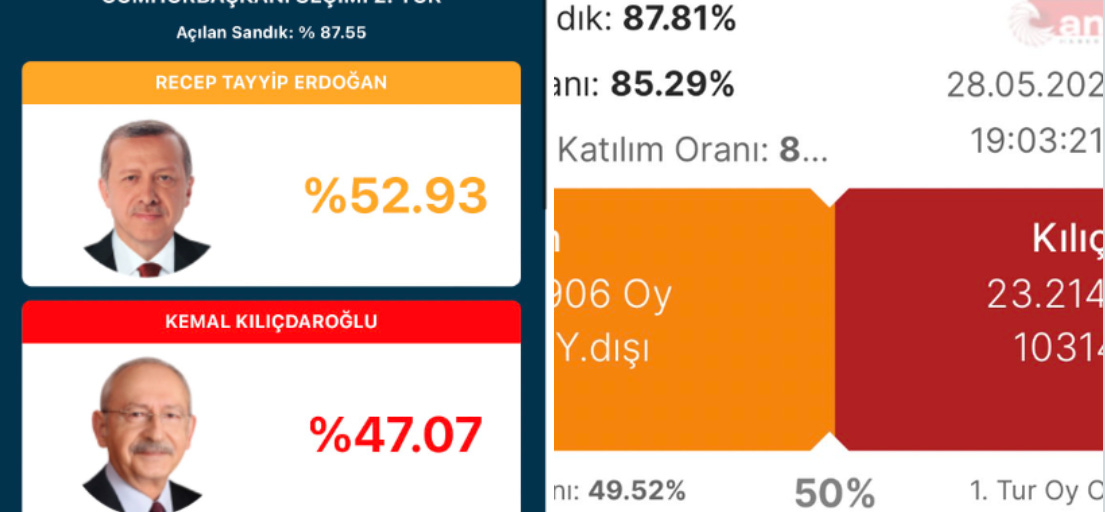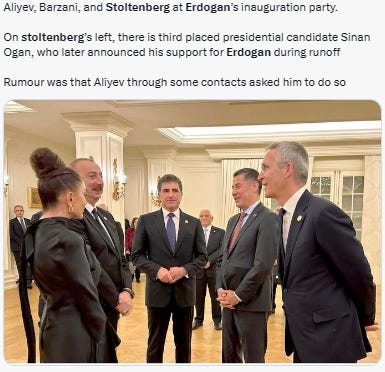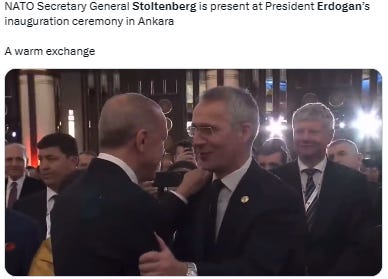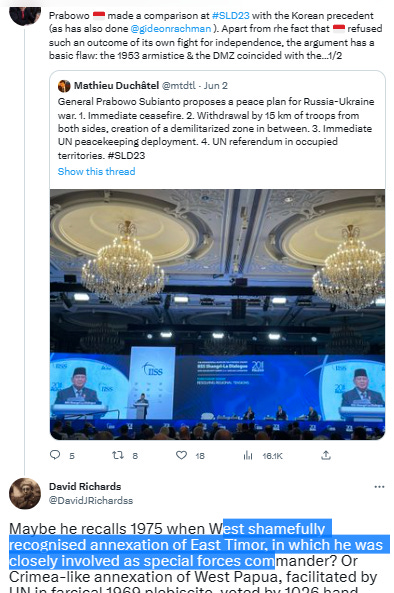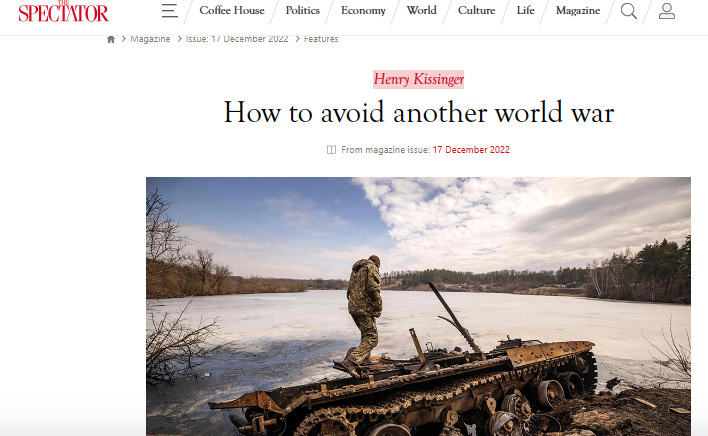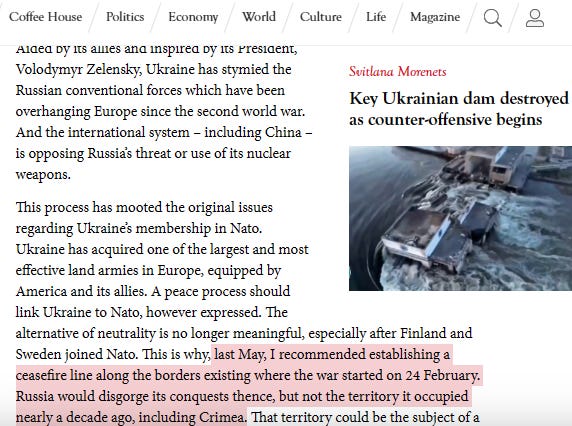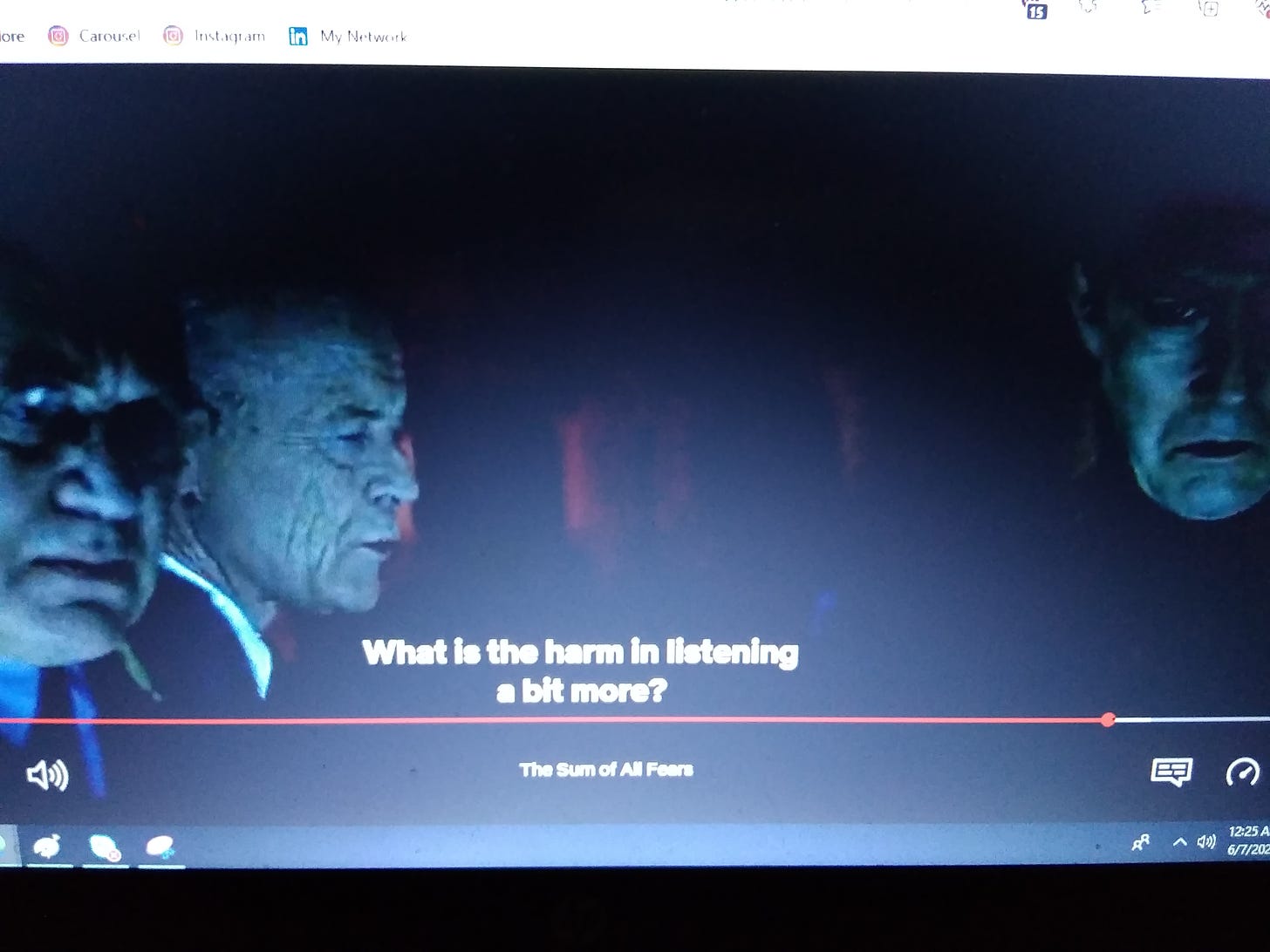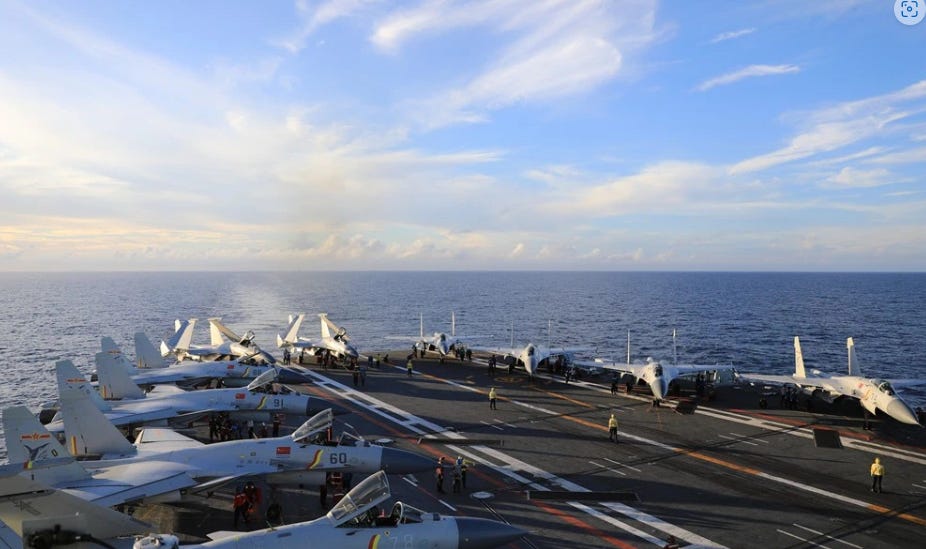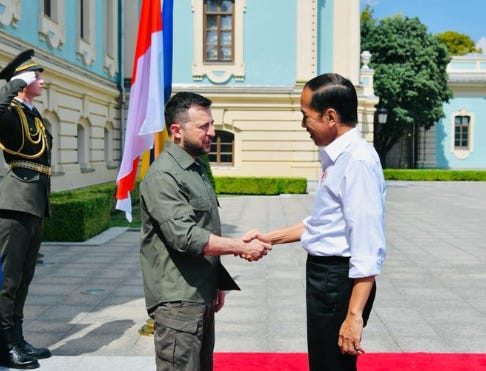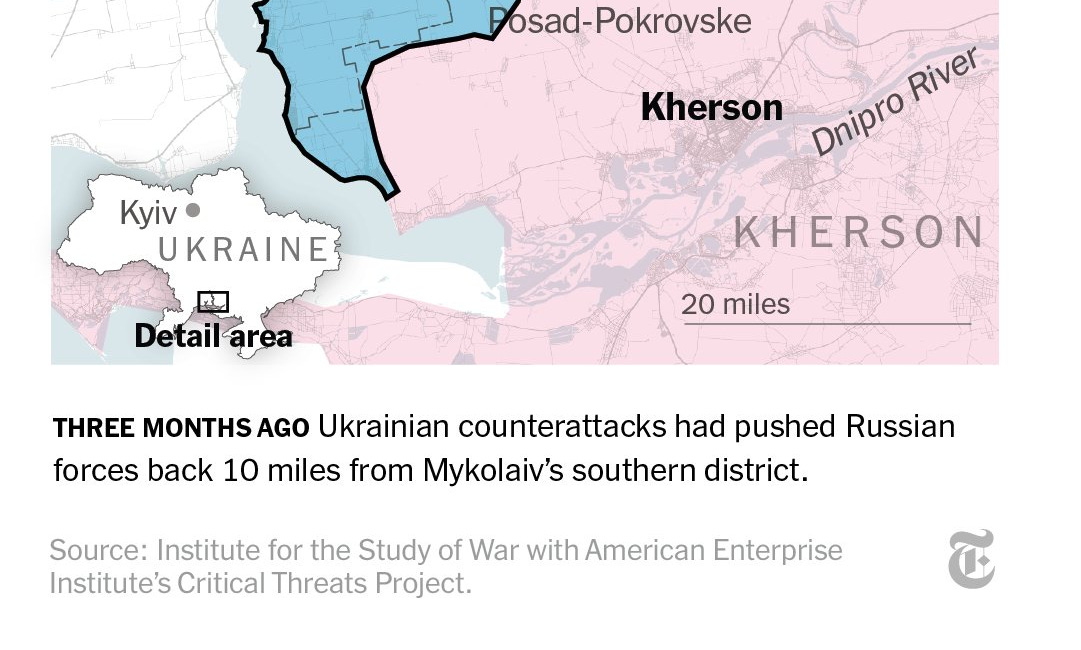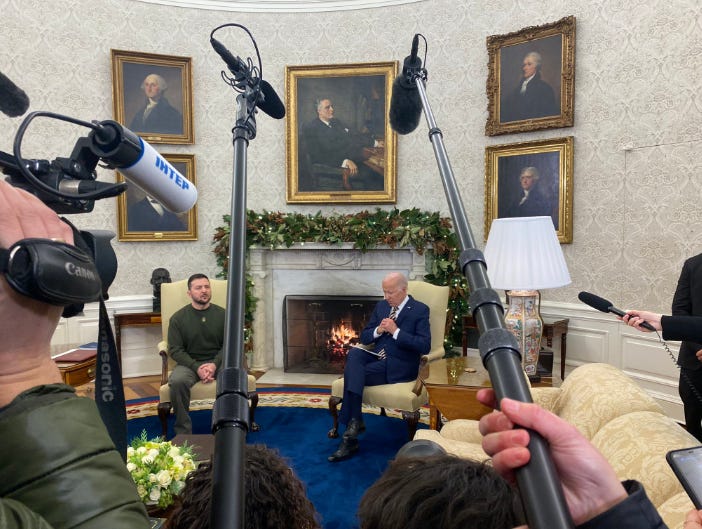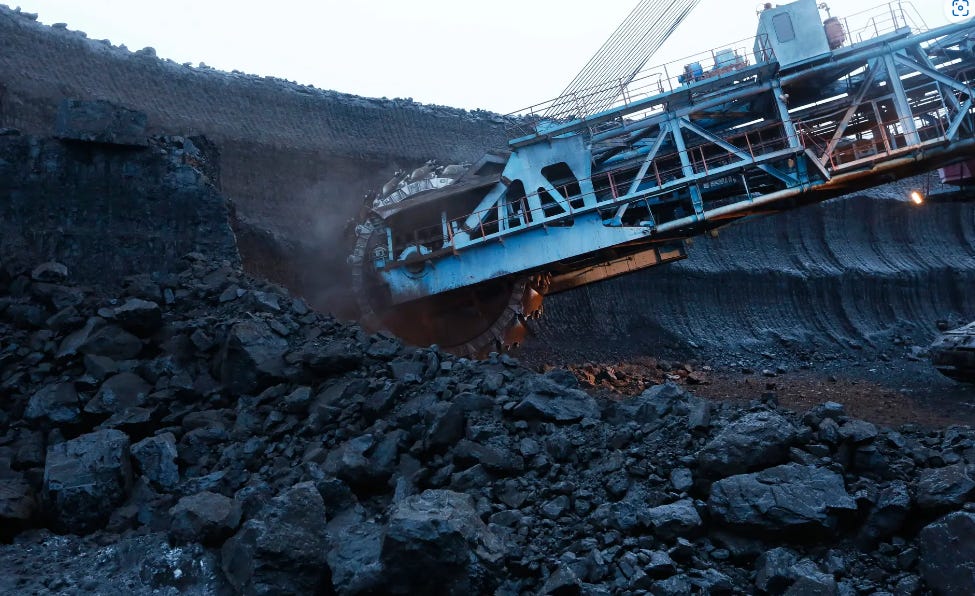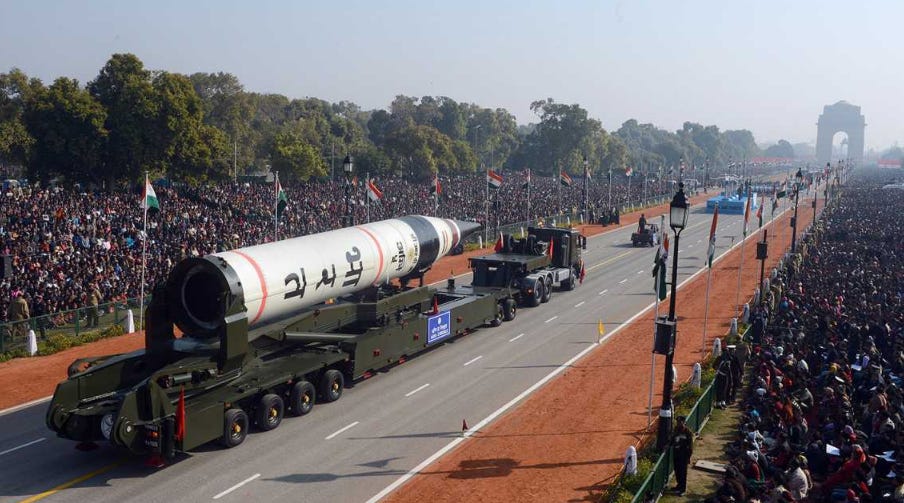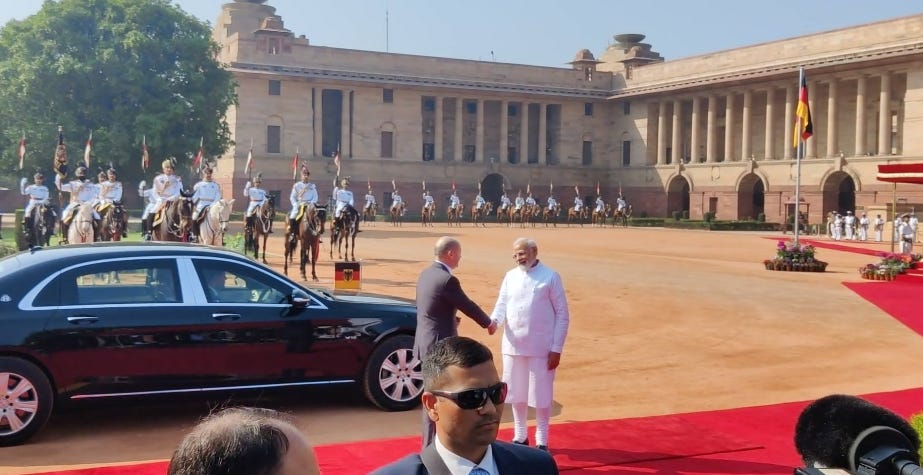NATO Open-door policy until Kremlin's Next Door, but no room inside: Painful Budgeting for HQ and for Ukraine
Brussels 2.58pm / DC 8.58am / Kyiv 3.58pm
Counter-offensive by Ukraine army already begun since 11 hours ago. NATO even not only busy in Ukraine: set up new office in Tokyo, but France Macron objects to Nato plan for office in Tokyo.
Germany, the 2nd wealthiest NATO member, needs to pull its weight in NATO and an economic model fit for the changed global environment. Big EU (non UK of course) powers still short of NATO spending targets Only 7 of 30 alliance members spent at least 2 percent of their GDP on defense in 2022. The U.S. pays for 54% of NATO’s economic & 70% of defense expenditures. It was horrible before the war. Germany: 1.49 percent. Italy: 1.51 percent. France: 1.89 percent (*again, France objects to NATO plan for office in Tokyo). Olaf Scholz’s about-turn on military aid policy will be transformative – and shows how German attitudes to the war are shifting.
Olaf Scholz doesn’t do pomp. Nor does he do charm. A man who screws up his eyes when he tries to smile, the German chancellor welcomed Ukraine’s president to Berlin weeks go with characteristic stiffness.
Yet of all Volodymyr Zelenskiy’s meetings with fellow European leaders over the past few days – from Rome to Paris to Chequers for more hardware and more embraces with Rishi Sunak – his day in Germany may be remembered as the most important. The announcement on the eve of his visit of a doubling of military aid to Ukraine to a total of more than €5bn finally brings Germany (again, although Germany only spend 1.49% GDP for defense) in from the cold. The consequences may take months to be seen on the battlefield, but in geo-strategic terms they are immediate.
Zelenskiy knows that he has perhaps only six to eight months for his counteroffensive (started today June 5th) to make sufficient inroads to force Russia out of the areas it seized in 2022 and, better still, out of lands it annexed in 2014. Germans are told to pull their weight but not to throw their weight about. They pride themselves on Vergangenheitsbewältigung, their coming to terms with their past. Yet in recent years among some sections of society, particularly Scholz’s Social Democrats, one wrong lesson was learned. These “salon pacifists” reinterpreted the phrase “never again” to mean never again going to war, rather than never confronting tyranny. The terrible invasion of Iraq reinforced that view.
Rishi Sunak publicly talks up Ben Wallace's candidacy for Nato chief for the first time. Wallace 'does a fantastic job' as defence sec & is 'widely respected' around the world, says PM. UK is key contributor & 'thought leader' in NATO, plus always meets spending vows, he adds. Boris Johnson maybe to be cult in Kyiv because his desire to helping Kyiv, same par as Diego Maradona in Napoli.
Second point is key. Danish PM Mette Frederiksen and Canadian Deputy PM Chrystia Alexandra Freeland are among other names tipped for role (especially amid interest in first female NATO Secgen, inspired by EU Chief Ursula von der Leyen). But Denmark only set to meet 2% GDP defence spending target this year, while Canada still far short. Denmark's government announced (May 29th) that it would triple its defence budget over the next 10 years as it intends to reach the NATO goal of spending two percent of GDP by 2030.
Biden is welcoming Frederiksen and Sunak this week to Washington for talks that will focus heavily on the war in Ukraine—including the recently-launched effort to train, and eventually equip, Ukraine with F-16 fighter jets. For specific Mette Frederiksen, maybe get a chance for her to get “Green Light by Biden for NATO SecGen Candidacy.
Chrystia Alexandra Freeland’s Ukrainian heritage would add some collateral interest. As someone steeped in Eastern European politics and history, someone who can speak English, Ukrainian, Russian, Polish, French, Spanish and Italian, Freeland likely would be considered a major asset at a time when the alliance is trying to hold itself together in the face of a major regional war. Her knowledge of Russia and the inner workings of the Kremlin would be another major plus. NATO sources say the deputy PM is in the 'middle of the pack' of strong candidates — if she wants the job.
"There are several very qualified women out there who would be very good candidates," said a top NATO official who spoke to Canadian CBC News. (The source spoke to CBC News confidentially because they are not authorized to speak on the matter publicly.)
"It seems there is some momentum for a woman to be the next [secretary general]."
Most people you talk to in the steel and glass concourses of NATO headquarters will repeat the same mantra — that the seven-decade-old military alliance is looking to gain the fresh perspective a woman would bring to the secretary general's post, and that they're looking for someone with grit and international connections.
But how much actually NATO will spend for HQ itself?
Turns out NATO’s new and shiny €1.1 billion headquarters is too small to house newcomers Finland and Sweden, officials tell me, forcing the military alliance to look at constructing an extra building and re-organising its current office space.
Jake Sullivan, NSA adviser, says more nuclear arms not needed to deter Russia, China. Sullivan also said Washington will abide by the limits on strategic nuclear weapons set in the 2010 New START treaty until the pact's 2026 expiration as long as Russia does the same, and it is eager for arms control talks with both Moscow and Beijing. So NATO wants to build new (branch) office in Tokyo: to deter China. Another budget.
Biden sent a ship full of missiles (USS Chung Hoon) into waters claimed by China in the Taiwan Strait in yet another reckless act of provocation, and once again U.S. military and U.S. media are crying that China was rude about it.
How would U.S. react if they sent their navy off the coast of Los Angeles? After (accused) China spy office in NYC, how would U.S. react if they built “Politburo Office” in Mexico City or Havana to retaliate NATO’s office in Tokyo?
The best way to prevent incidents is for other countries, especially their naval vessels and fighter jets, to not manoeuvre close to other countries’ territories. What’s the point going there? In China, we always say, ‘mind your own business.’
Celebrating Finland join NATO, US Secretary of State Blinken reiterates warnings about a superficial ceasefire for Ukraine, saying one that freezes current lines in place with Russia controlling large swathes of Ukrainian territory “is a Potemkin peace. It would legitimize Russia’s land grab.” Further strengthening Ukraine’s defenses against Russia was a “prerequisite” for diplomacy to end the war in Ukraine. Blinken shade to Kremlin, saying “Kremlin often claimed it had the second strongest military in the world, today, many see Russia's military as the second strongest in Ukraine.”
Apparently the US Pentagon released (in website, June 9th, 2023, click here) this statement on its official website acknowledging that it has funded 46 biological facilities in Ukraine over the past 20 years. Vladimir Putin was right all along, although how evil Putin.
If true, the Administration withheld the information for months as the media widely speculated that Russia blew up its own pipeline. The lack of candor over Ukraine denied critical information on the conduct of our ally at a time when the public is debating the increasing costs of the war.
It is often said that “The first casualty when war comes is truth.” The line is attributed to Hiram W Johnson in 1929 in a debate over a dubious effort to legislatively ban war. That line is not original to Johnson but what followed should be equally notable: “this mode of propaganda whereby … people become war hungry in their patriotism and are lied into a desire to fight. We have seen it in the past; it will happen again in the future.”
The lack of candor over Ukraine denied critical information on the conduct of our ally at a time when the public is debating the increasing costs of the war. If Ukraine is engaging in sabotage against NATO allies (and the environment), we have a right to know. If committed by Ukraine, the drone attack on the Kremlin was remarkably stupid. It threatened an escalation of the conflict with little obvious military advantage. With tens of billions of dollars going to Ukraine and a world teetering on the brink of a large conflict, we (and particularly Congress) need to know if our allies are telling us the truth or whether they are reliable allies. Likewise, if Zelenskyy did not now of these major operations, it is a fair question to ask who is really in charge of the country or whether Zelenskyy is engaging in willful blindness.
It is even more troubling when Administration officials are presenting conflicting accounts or denying any knowledge of countervailing facts.
Throughout U.S. history, Administrations have jettisoned truth when embarking on war. The most glaring example is the Tonkin Bay Incident that was used to justify the Vietnam War, an attack on U.S. vessels that was later debunked. Likewise, the Pentagon Papers during the Vietnam War revealed, according to the New York Times, the government “systematically lied, not only to the public but also to Congress.” Or My Lai Massacre, thanks for tireless reporting Seymour Hersh. 60% of intl journo say that they never / rarely give fixers credit 86% of fixers would like credit. 50% say they have been corrected by a fixer, whereas fixers report correcting 80% (stats: Global Reporting Centre). Seymour work alone with his (anonymous) connection in Pentagon, etc. Albeit his minor reporting, should we have concerned how dangerous sabotage Nord Stream and especially if Nord Stream sabotaged by Ukraine.
This is precisely why Congress is given oversight authority and why war powers are shared with Congress. The most important power held by Congress is the power of the purse. It has an obligation to guarantee that money is being spent wisely and based on accurate information.
Many of us supported the sanctions against Russia and still support the Ukrainians in their fight to protect their homeland. However, that does not mean that we should be played for chumps.
The Western military alliances’ building in Brussels, inaugurated in 2018, is becoming too small to accommodate future members’ delegations, according anonymity source, reported by Euractiv.
“Finland’s move into NATO’s headquarters will be completed in the coming weeks and months,” one NATO official confirmed, adding that would also be the case for Sweden “once they join NATO as full members”.
But the problem is that neither of those delegations would fit into the current building.
At present, Finland, Sweden, and other partner countries have their delegations located in NATO’s former headquarters, an old compound built amid the Cold War, across the street on Boulevard Leopold III.
The decision was to leave the building to delegations of partner countries when the new HQ opened less than five years ago. At the time, since NATO diplomats and officials saw the alliance’s expansion in a distant future, the general idea was to build an additional wing in the new headquarters when the time came.
Fast forward to the present, Finland joined NATO in less than 12 months, Sweden is currently on track of becoming a member before summer, and a potential accession of Ukraine and Georgia in the near future is not completely excluded. But of course, Erdogan still say no to Sweden, although Stoltenberg greeted Erdogan in Inauguration Third Term Türkiye Presidency.
NATO officials have been scrambling for a solution to have Helsinki and its future 50-people-strong mission integrate into the headquarters building and leave the partners’ compound.
One solution the alliance’s administration considered is erecting an additional building on the military alliance’s campus, which could host NATO’s international staff and agencies, two NATO diplomats told EURACTIV.
It would be only a “temporary solution” but a quick resolution of the problem by “moving stuff around” to accommodate immediate needs.
Expanding the new recently-built headquarters with an extra wing, as the original plan went, would be only plan B, they said. It would be “too costly” after already paying for the new Headquarters, which cost €1,1 billion, according to NATO public figures.
“It is too early to say we will expand the headquarters,” another NATO diplomat said. But if and when NATO does welcome more members, “we will need to sort this issue out”.
What to expect at Vilnius summit after informal NATO meeting in Oslo according to official info:
1} a new Defence Investment Pledge with 2 % of GDP as the minimum,
2} deepening partnerships with Indo-Pacific partners,
3} upgrading NATO-Commission to a NATO-Council.
According to The Economist, Russia is spending a "puny" amount on the war, a mere 3% of GDP, and what Russia is getting for that $67bn/year is quite astonishing. The Russian military is growing like crazy in both personnel, capabilities and equipment. NATO's collective budget is $1.3tn, so Russia's budget is a little more than 5% of what the Alliance spends.
That's a real David vs Goliath scenario if there ever was one. One of the main things going for Russia is that it's fighting from home turf, which compensates a huge amount in terms of logistics. NATO could escalate, it could send more air defense systems, advanced aircraft, precision guided missiles, drones, etc., but Russia has proven that it can tackle just about anything the West can throw at it. If the West sends it, Russia will work diligently to destroy it.
Demilitarization is literally one of Russia's key mission objectives. But the deeper NATO gets involved, the higher the risk of crossing the point of no return. If Russia upgrades NATO to full belligerent status, then its a hot war between Russia and the West. Goodbye Ramstein AB, or some other US/NATO base in Europe. That could be the opening shot. Even though Russia has been fighting with one arm tied behind its back, it's fully 100% committed to going all-in if necessary. Whatever it takes to defeat the West's avatar army, Russia is going to do it. NATO, on the other hand, cannot go all-in without triggering World War III. America's NATO minions have their limits and would stop short of such insanity.
(*listening BIT MORE. A lack of nonsense nowadays between DC - Beijing and DC - Moscow in real life)
This means Russia has the clear advantage of being able to escalate as much as necessary, in terms of conventional force, while NATO does not. And that's why success in Russia's favor is already a forgone conclusion.
Nothing has gone right for the US and NATO since the initial phase of the war. Attempts to isolate Russia have failed. European economies have been stung badly by the war while others saved themselves and Russia by purchasing discounted Russian crude. Even the war theatre in Ukraine isn’t looking the way NATO envisioned it.
The international community has stayed scrupulously away from lining up behind the West. Other than its loyal G-6 states in tow, Washington has witnessed a resounding rejection of NATO’s plan to demonise and contain Russia.
The Global South (Indonesia, India, China, South Africa, Brasil, etc) has instead discovered an opportunity to advance their own interests and embrace a multipolar world order where weaker states can henceforth bargain for better deals with the major players. India’s foreign policy exemplifies this trend that can today be seen in South America, Africa, Middle East and even in parts of East Asia. The Global South keep buying oil and gas from Russia. Russia defied the double-digit recession forecast for it in 2022 by only contracting by 2.1 percent. Even the IMF projects positive GDP growth for the Russian economy in 2023 and 2024.
Great power geopolitical alignments have also shifted adversely. China – the swing power for the West – has barely budged its position. Since the outbreak of the Ukraine war, Washington has attempted to imagine cleavages between Moscow and Beijing that it could exploit for a new western rapprochement with China.
Senior US policymakers, including the President, along with a flurry of European leaders have attempted to court the Xi Jinping regime in an attempt to nudge China away from Russia. But to little avail. The Chinese seem unwilling to jeopardise their partnership with Russia. With their own potential flashpoint right under their nose in Taiwan, Beijing fears a similar fate for itself in the future.
Unanticipated Economic Blowback
The real trump card in Western hands has always been the economy: the legacy dominance of the US dollar, control over international supply chains, and the ability to arbitrarily impose collective sanctions and isolate a country. These are unique leverages that no other great power can claim to possess as of today. This is where the US truly felt it had the upper hand. It could not only destabilise Russia, perhaps even fatally, but also rewrite a new chapter on globalisation.
Yet shockingly again, and despite dramatically severing European energy and industrial linkages with Russia, the blowback to the West has been more severe than the intended impact on the Russian economy. European economies are reeling from inflation and the spectre of de-industrialisation, fueled by a supply side energy and commodity crisis caused by western sanctions.
Industrial giants like Germany have slumped into a recession. Economists can no longer deny just how critical the Russian commodity and energy link as well as market access was for European prosperity and industrial vitality.
But how did Russia escape its own economic strangulation? Very simply, the non-western world did not commit hara-kiri. China and India along with several other developing economies quickly replaced western markets, providing not only a lifeline to Russian exports but also drew unusual growth benefits of their own from discounted crude oil.
Flushed with revenues, Moscow has been able to procure industrial components, machinery and consumer goods necessary for its basic economic stability. Trade with China is estimated to touch $200 billion in 2023, emulating a role played by Germany in the past.
As a consequence, Russia defied the double-digit recession forecast for it in 2022 by only contracting by 2.1 percent. Even the IMF projects positive GDP growth for the Russian economy in 2023 and 2024.
Finally, it is in the war theatre itself where events have unfolded calling into question the entire geopolitical gamble of the West. After the initial phase when Russia received a rude shock about the full extent of NATO’s penetration and the systematic buildup of the Ukrainian armed forces since 2014, Moscow shifted to a strategy of attrition.
This meant occupying territory – usually the primary objective of a war – became less important (other than of course the ethnic-Russian dominated Donbass and Crimea) than degrading and destroying the NATO-built force inside Ukraine.
Classical war of manoeuvre with large tanks battles in vast open fields or direct assaults on entrenched Ukrainian positions – scenarios that NATO expected and trained the Ukrainian military for and for which it invested in major defence lines around the Donbass – were replaced by gruelling and bloody struggles for strategic cities and gateway towns.
Russia has prevailed in all these major urban battles that will help it secure eastern Ukraine. At the same time, Russia has used its offensive firepower to freely strike at military, logistic, high value infrastructure, and command and control targets across Ukraine including in Kyiv. Russia adapted to fight an intelligent and relatively low casualty war of its choosing and not the one NATO had planned to bog it down in.
A few themes are now increasingly clear. The bulk of the Ukrainian military force has been largely destroyed in the past 12 months of the war. The replacement units being inducted after the most recent round of NATO training in the UK and elsewhere cannot restore those massive losses.
The industrial capacity to wage a big and long war has been severely impaired, not just in Ukraine but in NATO. NATO countries have already sent over $70-80 billion worth of military equipment, with the lion’s share coming from the US. The real constraint now is western production capacity because NATO planners never anticipated a war with a peer competitor that might exceed a few weeks of intense combat.
To get a sense of the gap – Russia fires artillery rounds in an afternoon in Ukraine equivalent to at least two months of US production. NATO weapons systems that were fielded to alter the course of the war have come up short. The Russian military seems to be ahead of NATO on at least the following capabilities – air defence, electronic warfare, artillery/counter artillery, and hypersonic missiles.
The much-touted Ukrainian counter-offensive is likely to run into the famous monsoon season before it clashes with any Russian formations. What might follow after that is another gasp of NATO-fueled fighting before Russia inflicts its own counter-offensive.
The blowback in Ukraine is real and the most significant geopolitical trend of the past year.
======end———
I was lured, inspired by someone writer, his post in LinkedIn months ago, “Currently after a routine daily writing newsletter in the last 10 years, my subscriber reaches 100,000. Maybe one of my subscribers is your boss.” After I get followed / subscribed by (literally) prominent AI and prominent Chief Product and Technology of mammoth global media (both: Sir, thank you so much), I try crafting more / better writing.
To get the ones who really appreciate your writing, and now prominent people appreciate my writing, priceless feeling. Prada ungated/no paywall every notes-but thank you for anyone open initiative pledge to me.
(Promoting to more engage in Substack) Seamless to listen to your favorite podcasts on Substack. You can buy a better headset to listen to a podcast here (GST DE352306207). Listeners on Apple Podcasts, Spotify, Overcast, or Pocket Casts simultaneously. podcasting can transform more of a conversation. Invite listeners to weigh in on episodes directly with you and with each other through discussion threads. At Substack, the process is to build with writers. Podcasts are an amazing feature of the Substack. I wish it had a feature to read the words we have written down without us having to do the speaking.
Thanks for reading Prada’s Newsletter!




